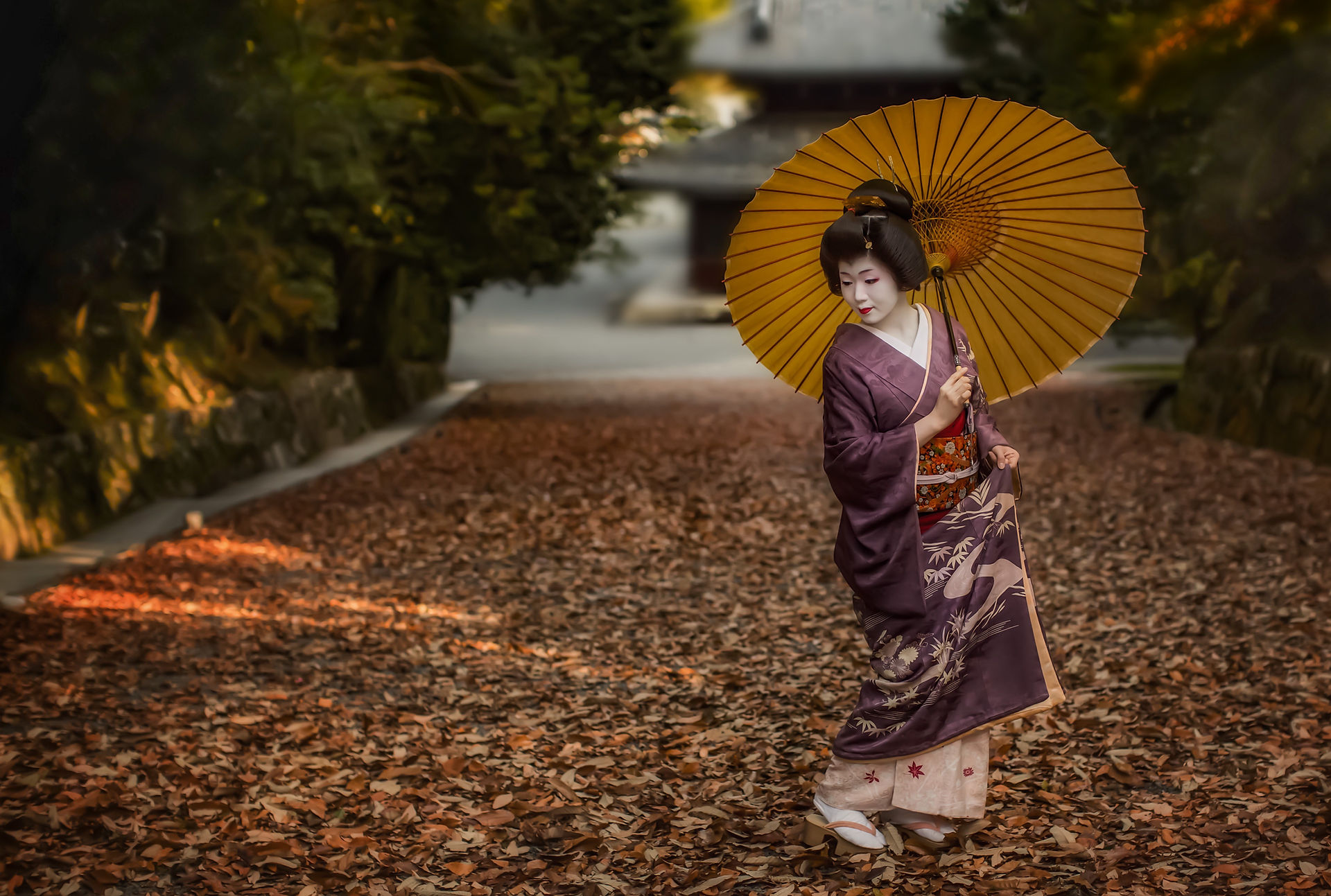
This is another portrait from my 人美真 - True Beauties -Shin Bijin - New Years Day series, inspired by the woodblock prints of the same name from the Meiji Period…
During this special New Year period, my geisha friends are all dressed up in their most formal way, wearing a luxurious black kimono called kuromontsuki, a golden obi, red under-kimono, and having a special hairstyle especially for this occasion and the formal Sanbon-Ashi makeup (three lines on the back of their neck). During this festive period, they also wear signature hair ornaments made of turtle shells and a real rice stalk, signifying a long life of abundance.
This year, black is deemed a lucky color based on fengshui calculations because it represents the element of wealth/ prosperity which is sorely lacking in 2024's charts.
This one is called a visit to the Tenmangū (天満宮).
Tenmangū is a Shinto shrine which enshrines Sugawara no Michizane as Tenjin. There are about 14,000 such shrines in Japan.
In the Shinto religion of Japan, Tenjin (天神), also called Tenman Daijizai Tenjin (天満大自在天神), is the patron kami (deity) of academics, scholarship, of learning, and of the intelligentsia.
Tenjin is the deification of Sugawara no Michizane (845–903), the famous scholar, poet and politician of the Heian period.
Ten (天) means sky or heaven, and jin (神) means god or deity. The original meaning of Tenjin, sky deity, is almost the same as that of Raijin (a god of thunder).
In Japanese history, Sugawara no Michizane rose high in the government of the country in the late 9th century, but at the beginning of the 10th century, he fell victim to the plots of a rival, a member of the Fujiwara clan, and was demoted and exiled to Kyushu. He died in exile in 903. On July 21, 930, the capital city was struck by heavy rain and lightning, and many of the leading Fujiwara died, while fires caused by lightning and floods destroyed many of their residences. The court of the Emperor drew the conclusion that the disturbances were caused by Michizane's onryō (怨霊, vengeful spirit), and, to placate it, the Emperor restored all Michizane's offices, burned the official order of exile, and ordered that the poet be worshiped under the name Tenjin, which means sky deity. A shrine was established at Kitano; it was the first rank of official shrines, supported directly by the government.
For the first few centuries, then, Tenjin was seen as a god of natural disasters, worshiped to placate him and avoid his curses. However, Michizane was a famous poet and scholar in his lifetime, one of the greatest of the Heian period, and in the Edo period scholars and educators came to regard him as a patron of scholarship. By the present day, this view has completely eclipsed natural disasters in popular worship.
Tenjin's influence is now regarded as particularly strong in passing exams, and so many school students, and their parents, pray for success at his shrine before important entrance exams, and return afterward, if appropriate, to give thanks for success.



Comments